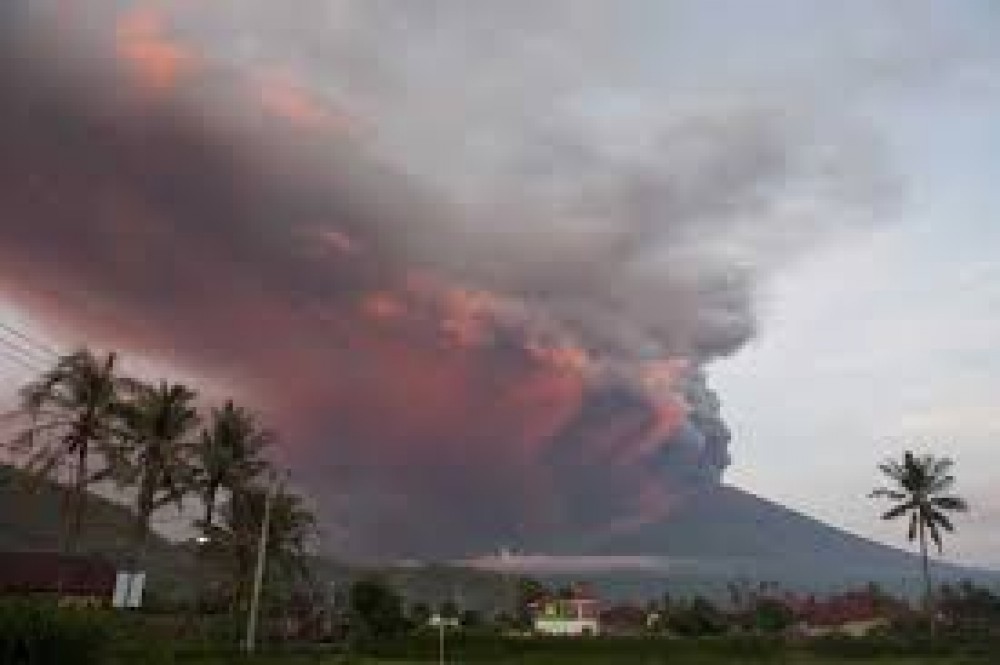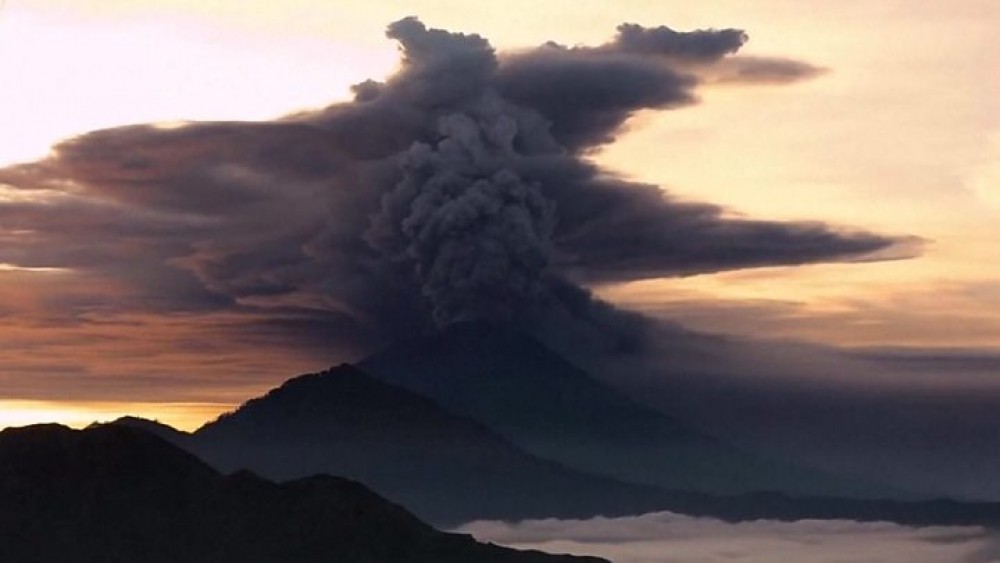An eruption could be imminent at a volcano belching huge plumes of smoke on Indonesia's resort island of Bali, officials warned Monday, as they raised the alert to the highest level and increased the exclusion zone.
Huge plumes of smoke have been pouring out of Mount Agung since Tuesday and senior state volcanologist Gede Suantika said it was belching thick grey smoke more than two miles (three kilometers) into the sky early Monday.
"The volcano's alert level has been raised to the highest level," said Suantika. "Constant tremors can be felt."
The exclusion zone around the volcano, which is 75 kilometres (47 miles) from the tourist hub of Kuta, has been widened to 10 kilometers, with people living in the exclusion zone being urged to evacuate.

About 25,000 people living nearby the mountain have already left their homes and evacuated since Mount Agung first started to spew smoke Tuesday.
"Continuous ash puffs are sometimes accompanied by explosive eruptions accompanied by a weak sound of boom," the National Board for Disaster Management said in a statement.
"The rays of fire are increasingly observed at night. This indicates the potential for a larger eruption is imminent."
National disaster agency spokesman Sutopo Purwo Nugroho called for people to stay calm.
"As we have widened the exclusion zone, so the number of people evacuating will increase but we don't have the latest data yet," he told AFP.
"Most important is always to follow our instructions and keep calm," he added.
Ash from Mount Agung has been covering villages nearby the volcano. Officials have distributed thousands of face masks to local residents.
The airport in Bali's capital Denpasar, a top holiday destination that attracts millions of foreign tourists every year, has been closed.
"Bali's airport has indeed been closed. We're still coordinating the next steps," airport spokesman Arie Ahsanurrohim told AFP.
The closure is set to affect tens of thousands of passengers, he added.

The airport on Lombok island -- also a popular tourist destination east of Bali -- has been closed since Sunday afternoon as the ash from Mount Agung headed into that direction, but it reopened early Monday.
The Australian government put out a travel advisory Sunday instructing travellers to exercise a high degree of caution in Indonesia and follow the instructions of authorities.
Mount Agung last erupted in 1963, killing about 1,600 people.
It rumbled back to life in September and authorities raised the alert to the highest level, forcing 140,000 people living nearby to evacuate.
The volcano's activity decreased in late October and many people returned to their home as the alert was lowered to the second-highest level.
But Mount Agung started rumbling again last Tuesday.
The mountain sent smoke up into the air on Saturday for the second time in a week in what volcanologists call a phreatic eruption -- one which is caused by the heating and expansion of groundwater.
Dozens of Balinese Hindus took part in ceremonies near the volcano on Sunday, offering prayers in the hope of preventing an eruption.
Officials later on Sunday said the activity could be a magmatic eruption -- one which involves the decompression of gas and results in the spewing of ash -- and advised people near the mountain to wear masks.
Mount Agung is one of more than 120 active volcanoes extending the length of Indonesia, which straddles the Pacific Ring of Fire.